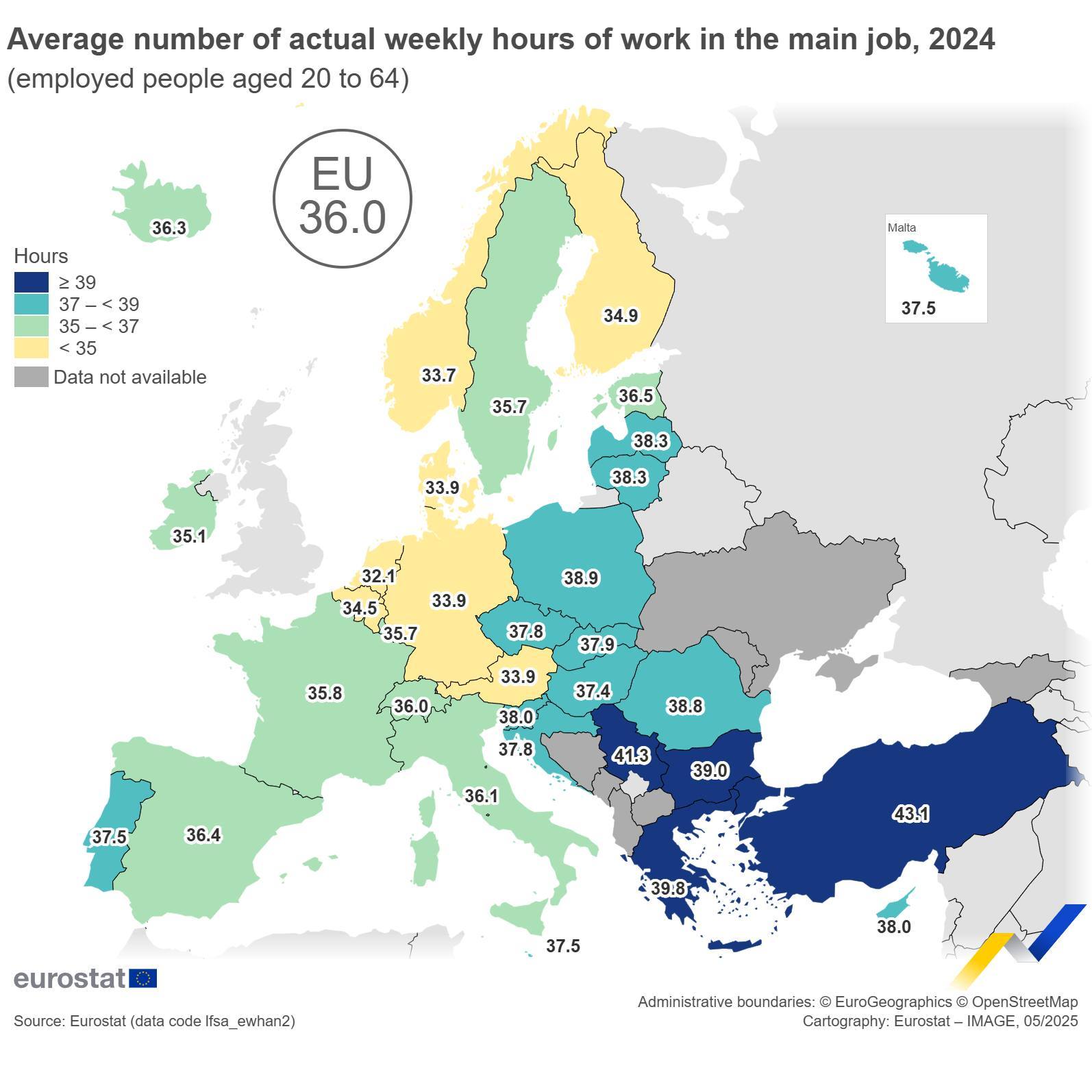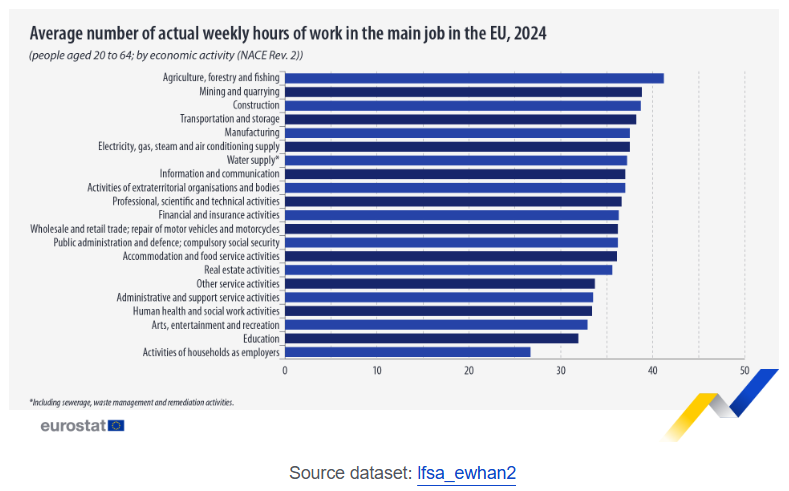Greece tops EU for longest working weeks – Almost four hours more per week than the average

Compared to 2023, the situation in Greece has stayed the same, while the EU average dropped slightly by 0.1 hours per week. The only country in Europe with longer working hours than Greece is Serbia, where the average working week is 41.3 hours, according to Eurostat.
“A closer look at EU countries reveals notable differences. In 2024, the longest working weeks were recorded in Greece (39.8 hours), Bulgaria (39.0), Poland (38.9) and Romania (38.8). By contrast, the Netherlands had the shortest working week (32.1 hours), followed by Denmark, Germany and Austria (each 33.9).”
Eurostat also highlights which economic activities reconrd the longest working week in the EU, in 2024. Agriculture, forestry, and fishing top the list with an average of 41.2 actual hours worked per week, followed by mining and quarrying at 38.8 hours, and construction at 38.7 hours. On the flip side, shortest working weeks were recorded in activities of households as employers (26.7), education (31.9) and arts, entertainment and recreation (32.9).
______________________________________________
Are you seeking news from Greece presented from a progressive, non-mainstream perspective? Subscribe monthly or annually to support TPP International in delivering independent reporting in English. Don’t let Greek progressive voices fade.
Make sure to reference “TPP International” and your order number as the reason for payment.
